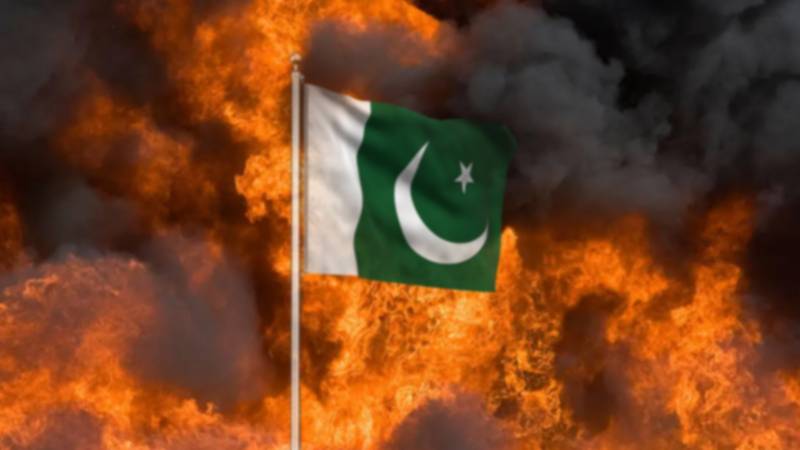
While following the Pakistani news, one is reminded of Oscar Wilde’s famous novel, The Picture of Dorian Gray. The story revolves around a portrait of Dorian Gray painted by Basil Hallward, a friend of Dorian's and an artist infatuated with Dorian's beauty.
Through Basil, Dorian meets Lord Henry Wotton and is soon enthralled by the aristocrat's hedonistic world view, that beauty and sensual fulfillment are the only things worth pursuing in life. Newly understanding that his beauty will fade, Dorian expresses the desire to sell his soul. The wish is granted, and Dorian pursues a libertine life of varied amoral experiences while staying young and beautiful; all the while, his portrait ages and visually records every one of Dorian's sins.
In the context of Pakistan, the above story can be portrayed as that of a country whose past has been rewritten, whose present has nothing to lose, and thus there is an urgent need to light new lamps for its future.
It would not be hard to see the compelling similarity between Dorian's decomposed picture and the rapid disfigurement of Pakistan. Born untainted as the Land of the Pure, it is disfigured now almost beyond recognition. One of the largest Muslim states and the only Muslim nuclear power armed country, it is clubbed today with Somalia and Afghanistan. What a fall!
The picture of Dorian Gray resembles, in all its weird detail, today's flood-ravaged, scandal-tainted, corruption-ridden, politically-fractured and institutionally "moth-eaten" Pakistan. A tense stand-off between parliament and the high judiciary; running battles between anti-judge black-coated lawyers and an unrestrained police force, sky-rocketing prices; rarely available electricity and little water has left the common man, the once most sought-after voter, to his fate.
The military is stretched thin between an endless, and largely self-imposed war, one on terror and that of the other being compulsively drawn into a three-cornered constitutional, political and economic stalemate.
As the level of mutual intolerance and estrangement heightens, each province, even if not at war with the other, may not exactly be at peace with the other. What sort of a people are we?
Are we a nation at all beyond our ID Cards, passports, National Income Tax numbers, with little obligation to pay our taxes? The richest amongst us pay the least taxes. Even if not exactly a norm, it remains true of many. A nation living without a social contract is not supposed to abide by social obligations.
Therefore, the story of Dorian Gray can be conceptualised in the context of Pakistan whereby the country can be taken as a portrait that acts as a kind of mirror, which reveals the dissipation of our resources and our youth by our very own hands.
The protagonists these days are ordinary Pakistanis, dreaming of revolution, struggling against deeply entrenched systems of exploitation and striving to bring change. Each morning, they rise with new hope, each night they close their eyes, worn out with fatigue. They are the political workers, teachers, students, poets, writers, intellectuals and labourers who seek social justice and public rights; those who are jailed or exiled and, ultimately, are lost in the murky depths of history.
The antagonists are fellow countrymen who never miss an opportunity to get rich, either by hook or crook. Thirsty for money, power and rank, their only concern is getting ahead, no matter who gets crushed underfoot in the process. They have set their conscience aside to achieve their goals and, consequently, the portrait in the attic, Pakistan, has begun exhibiting the most disturbing and disfigured image of our collective society.
The big question is, who do we trust? How do we figure out who is genuine and who has ulterior motives? Having done all we can to destroy it, we now denounce our country. But how can we blame a mirror-like picture that only shows our own ugly intentions, our own monstrous desires? It raises another question as to when will we become mature and bold enough to look into our mirror to see that we ourselves are the cause of our demise? It is a depressing realisation that the dreams of a beautiful nation as seen by the youngsters of this generation are still far from coming true.

